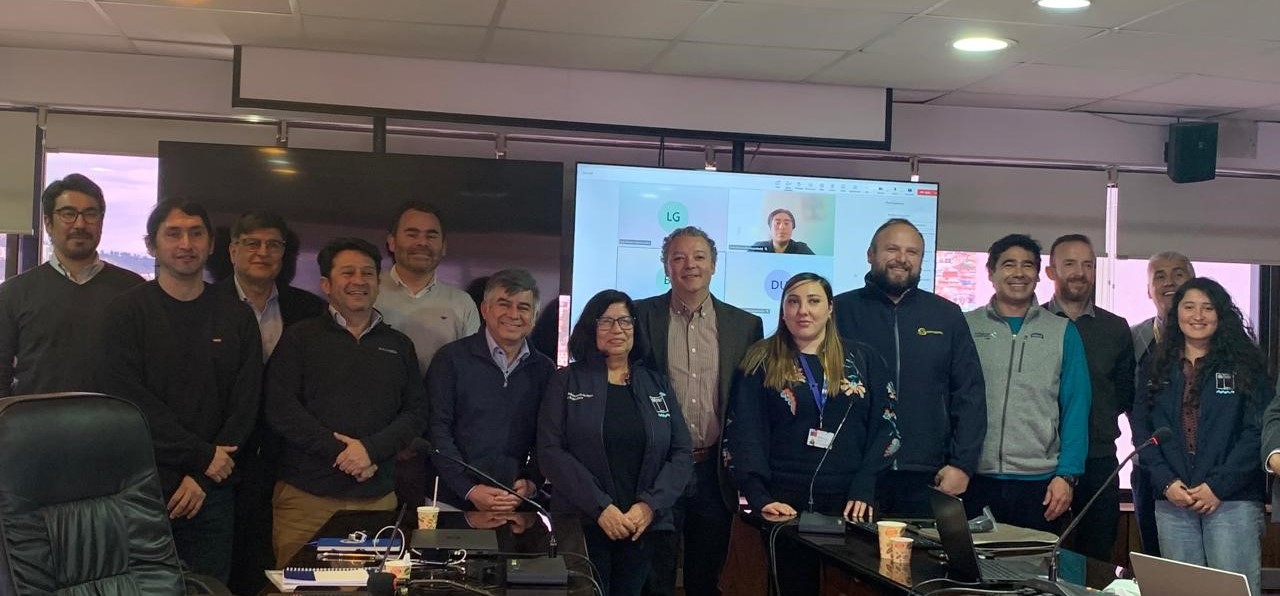
Photo: SERNAPESCA – Chile
In an initiative led by SUBPESCA and SERNAPESCA, and in collaboration with the Fisheries Development Institute (IFOP) and civil society organizations, the Future of Fish team in Chile is working on a project aimed at effectively and efficiently expanding Electronic Monitoring (EM) solutions for fishing through the use of Image Recording Devices (IRD) in the Chilean artisanal fishing fleet (specifically on vessels 15 to 18 meters long). These devices are already used in the industrial fleet in Chile, though they present significant technical and financial challenges.
To coordinate efforts, these actors have formed an inter-institutional technical working group. This group aims to develop cost-efficient technical standards and solutions related to IRDs, reviewing the state of the art of technology worldwide and its potential adaptation to the Chilean context through co-design and testing, also incorporating lessons and challenges from the existing electronic monitoring program in Chile’s industrial fleet. Although FoF Chile has been collaborating with SERNAPESCA and SUBPESCA for years on this initiative, the first formal meeting of the Technical Committee took place in late August at SUBPESCA’s offices in Valparaíso. Various aspects of IRDs were discussed, including challenges related to updating technical standards, hardware, software, transmission, storage, and data analysis.
This project seeks to address the challenges of sustainable fisheries management through real-time data collection and regulatory compliance, contributing to the objectives of law 20.625, which mandates measures to reduce discarding practices in fishing. IRDs capture images and data on species caught, fishing areas, and other relevant parameters. The collected information is delivered to fisheries authorities (currently in the industrial fleet through hardware transfer) for analysis and monitoring.
The benefits of technical solutions for IRDs are numerous, extending to both resource conservation and improved fisheries regulations and operations. They facilitate the identification and reduction of bycatch and discards, promoting more sustainable and responsible practices, which can open (or keep open) doors to more demanding markets, improving the reputation of fisheries, vessel owners, and their companies. Compliance with regulations, supported by IRDs, also provides transparency to the system and facilitates access to certifications that can add value to fishery products.
Additionally, these technical solutions enable the detection and prevention of illegal, unreported, and unregulated (IUU) fishing activities, thereby protecting marine resources and ensuring fairness in the sector. Data collected through IRDs allows for more accurate assessments of fish populations and more informed decision-making in fisheries management, ensuring long-term sustainability and benefiting the entire fishing sector.
Despite the positive experience of the industrial sector with electronic monitoring, the incorporation of an artisanal fleet of approximately 500 vessels (almost five times the number of industrial vessels currently equipped with EM systems) presents significant technical, financial, and regulatory challenges. It is crucial to consider economic and operational efficiency in solutions, evaluating among other things, the possibility of integration with existing technological systems like VMS, the incorporation of artificial intelligence elements for image recognition, remote transmission, and cloud storage. Additionally, a clear, effective, and transparent regulatory framework needs to be established to promote and facilitate the adoption of technology by providers and users, ensuring its effectiveness.
The FoF team in Chile approaches the project by highlighting the importance of collaboration with all fishing sector actors to achieve successful implementation of solutions. We are committed to working with vessel owners, government authorities, and other NGOs to ensure that IRDs are an effective tool for sustainable fisheries management in Chile, offering benefits for both marine resource conservation and the sustainable development of the sector.
Originally published in Spanish
Published Oct 30, 2024




